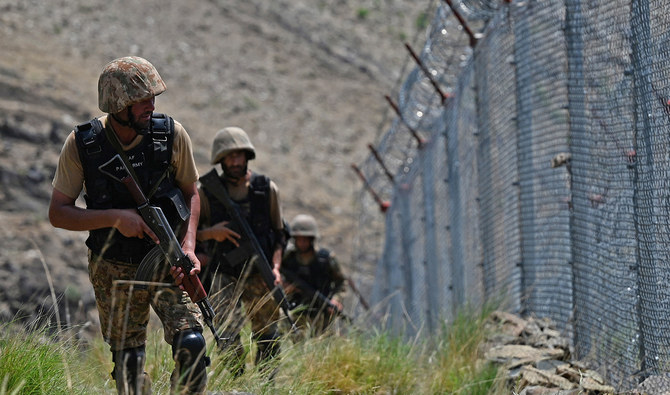PESHAWAR: Local tribesmen in the native town of a senior Inter-Services Intelligence (ISI) spy agency official announced three days of mourning on Wednesday after a group of militants killed him in an attack near the country’s border with Afghanistan the day before.
According to a statement issued by the army, Brig. Mustafa Kamal Barki was driving to Wana, the headquarters of South Waziristan tribal district, when his caravan came under attack near the frontier region of Angoor Adda. The ensuing shootout killed Barki and left seven troops injured.
So far, no group has claimed responsibility for the attack, which was described by his community members as a major loss.
“I really don’t have words to express how big a loss this is for the nation,” Malik Irfan Barki, a tribal elder and the slain official’s close neighbor, told Arab News. “What we have suffered as his community members is simply irreparable.”
“The demise of Mustafa Barki has shattered us and sent shockwaves through the Kaniguram valley,” he continued. “I called a grand jirga [tribal gathering] of Barki elders which announced three-day mourning over his tragic demise.”
Kaniguram, a picturesque town at the heart of South Waziristan district, is home to a small community of about 14,000 people.
The attack on Barki was launched amid a surge in militant violence in Pakistan since a proscribed militant faction, Tehreek-e-Taliban Pakistan (TTP), called off a fragile cease-fire with the government in November.
TTP militants have since targeted police and security forces in the country’s Khyber Pakhtunkhwa and Balochistan provinces located next to Afghanistan.
Nisar Barki, a cousin of the slain official, described his relative as a “caring person.”
He said Barki received his early education from a local school in his hometown before getting admission to an education institute in Tank.
“We studied together until the 12th grade and were even together at Cadet College Razmak in North Waziristan,” he added. “After completing his education there, Mustafa was selected by a medical college and Pakistan’s military academy, but he preferred to join the army.”
“He was a bold, courageous, and very caring person as a relative,” he continued.
He also said that his cousin joined the Frontier Force Regiment in 1995 and served in various capacities. He was also posted abroad to work with different Pakistani diplomatic missions.
The slain official was a graduate of the National Defense University and Command and Staff College Quetta. Apart from that, he also participated in the Kargil war and suffered injuries.
“My late cousin used to tell me to forgive and forget,” Barki said. “He was a genius and a deep-thinking man.”












